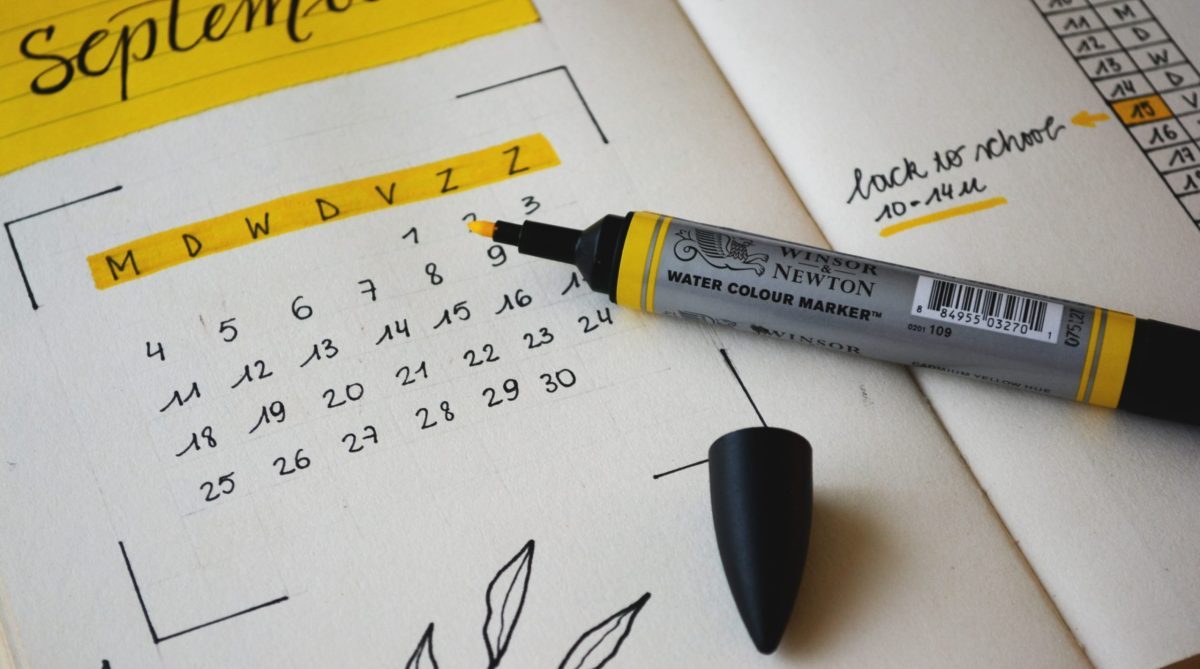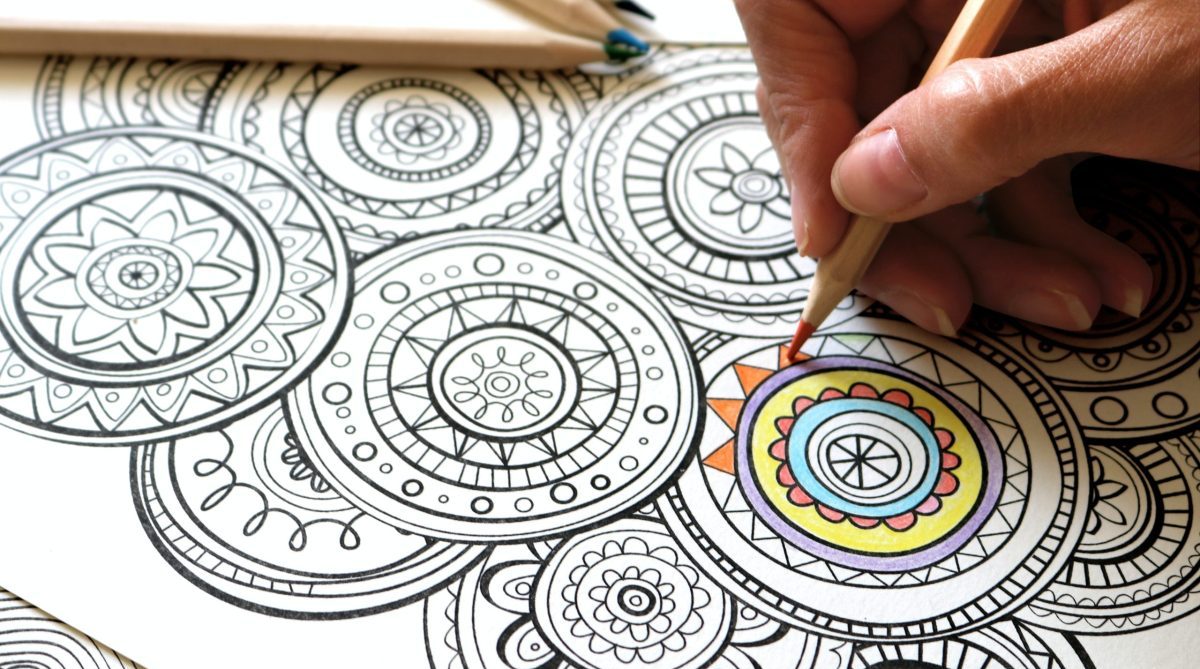Meditation

Meditating for even a few minutes every day can be an incredibly valuable practice. It can help you clear your mind and become more relaxed and grounded. This feeling can last and benefit you for the whole day. Being a calmer, more balanced person will benefit both you and the people around you.
Practice gratitude

There are many ways to practice gratitude in your everyday life. A great way to actively do so is to keep a gratitude journal that you fill in daily. Listing things you are grateful for can help you in becoming more grateful and therefore more positive day by day. Being a positive person helps you bring more joy into others’ lives and can help you achieve more.
Read for fun

A lot of people have their love of books crushed out of them because of all the reading they need to do for school growing up. However, reading for pleasure has been shown to be beneficial, especially if you do so regularly. Reading can expand your knowledge as well as your imagination, all of which can help you professionally as well as enriching you on personal level.
Be on time

This may not seem like a habit, but you have the choice every day whether you care enough to be punctual or not. You can practice being on time every day until it becomes second nature. This will help people in your life feel like you respect their time and it will likely reduce your own stress levels as well.
Sleep enough

Oftentimes, one of the root causes of stress is not getting enough sleep. Doing your utmost to get a full eight hours every night will make sure you are rested enough to take on each day, which can lead to a much better life and outlook. Getting enough sleep can improve your mood, boost your energy levels, increase your productivity at work and make you feel happier in general.
Give compliments

It’s easy to forget the impact a simple kind word can have. Going out of your way to compliment people every day is a great habit to build. You will make the people around you feel more appreciated, for one thing. It will also improve your point of view: the more you concentrate on the positives in other people, the more positivity you will see and feel in general.
Learn something new

Learning a new skill can revitalise your mind and make you a better person overall. Once out of education, many people stop trying to learn anything new. Pushing yourself to learn new things can expand your mind. Knowing more skills can never be a bad thing. You may even make new friends or find a new regular hobby through this.
Use affirmations

Affirmations are otherwise known as positive self talk. Saying positive statements about yourself out loud can help you gain a more positive view of yourself. Voicing these statements has been shown to truly change how you view yourself and increase your confidence, which can positively affect many aspects of your life.
Unplug from your devices

Technology certainly has its benefits, and our modern world wouldn’t work the same way without it. However, there’s no denying we can get caught up in thumbing across screens to the point that it becomes an addiction. Having some of your work free time every day that is away from your devices can be incredibly valuable. This can help you reconnect with what truly interests you and makes you happy.
Create a morning routine

If you enjoy running, then make it a habit to go for a run first thing in the morning. Or, if meditating or eating breakfast makes you feel energized, then start your day with that activity. Starting your day with a positive, proactive mindset is important. Rushing to make up for lost time can cause stress and mental fatigue, which can weaken your productivity.
Choose your relationships carefully

As the old adage goes, you are the average of the five people you spend the most time with, so choose those people wisely. Give up on relationships that cause you pain, and spend time with people who know how to make you happy. Happiness is a powerful force for change, so it can help you develop positive habits and attitudes.
Invest in yourself

It’s important to take time off every now and then to relax. Doing something that makes you happy each day can help improve your mood, mental health and self-esteem. Whether it’s listening to music, learning a new skill or even just taking a long bubble bath, find something that floats your boat.
Take responsibility

When something goes wrong on your watch, don’t blame other people for it. It’s tempting to blame someone else if you make a mistake or if something doesn’t go as planned, but ultimately it’s up to you to handle the situation. Instead of trying to blame others for your mistakes, take responsibility for them and learn from them. This will help you develop a sense of responsibility and mature into a better person.
Forgive

Anger is a normal emotion, but it can be destructive if you don’t manage it well, so try to let go of negative feelings as soon as possible. You might try meditating or praying, or simply writing down your thoughts to help release tension. When you hold on to anger, it can make you act in ways that are not beneficial to you or those around you; you may make bad decisions, or get into fights. Anger is also bad for your health, as it can cause high blood pressure and heart disease.
Listen to others

We always seem to be in a hurry, with so much to do, so many places to be, and so many people to meet. This means we often fail to make time for the important things in life. When you listen to other people, you learn more about them, which can help you to become a better friend. By listening, you also show that you care about what they have to say.
Make your bed

There’s a reason your parents always nagged at you to do it. Making your bed just isn’t tidy: research suggests it’s genuinely good for your mood and your health. In her book The Happiness Project, Gretchen Rubin determined that making the bed is one of the easiest things you can do on a daily basis to boost your happiness. It’s a small, easy victory that can lead to bigger successes throughout the day.
Eat healthier

Adopting a healthier diet is a journey, not a destination. A series of small steps – like eating more fruits and vegetables – can snowball into major lifestyle changes that make you feel better overall. Focus on adding more fresh, natural produce to your diet, as opposed to cutting out or limiting certain foods or food groups.
Keep your space organized

We all have chores we’d rather avoid at the end of a long day, but if you leave dishes in the sink or laundry piled on a chair, you’re less likely to feel fully relaxed when you go to bed at night, and more likely to feel stressed first thing the next day. Before you go to bed, spend five minutes cleaning up your kitchen and bedroom. A clean kitchen will make you happier in the morning, and a less cluttered bedroom can help you sleep at night.
Purge your social media following

If you follow inspiring accounts on Instagram, you’ll be more likely to feel inspired yourself. Follow other people whose careers you admire, and find accounts that will bring you positivity whenever you are tempted to scroll. You can use social media to feel inspired by others, but don’t let it make you feel bad about where you are in life. Instead of watching other people’s lives, go live your own.
Donate

It may sound counterintuitive, but spending money on other people has a way of making us feel wealthier. Even more important than our own finances is what we can do to help other people. Taking the time to educate yourself on organizations and charities that need your help is an easy way to make a difference in someone else’s life. Even the price of a latte can make a difference.
Drink water

To stay healthy, you need to drink plenty of water. The 8-glass recommendation is actually a guideline; the number of glasses you need depends on your size and activity level. Regardless, drinking plenty of water is always a good idea. Adequate hydration prevents chronic kidney disease and helps you manage constipation. Drinking about 17 ounces of water two hours before exercise improves your athletic performance.
Walk 10,000 steps daily

The American Heart Association recommends that people walk 10,000 steps a day, and walking is one of the easiest ways to maintain a healthy weight. If you have a simple pedometer that costs less than $10 on Amazon, you can start accumulating steps by skipping lunch at your desk and leaving the office to eat outside. You can also take the stairs instead of the elevator, and park farther away from where you’re going so that you’ll be forced to walk a bit before reaching your destination.
Breathe in fresh air

Taking a walk outside is an excellent way to get some fresh air and reduce stress, which in turn can improve your mood. It’s also an easy and effective form of exercise that can strengthen your heart and lungs, reduce the risk of heart disease and stroke, lower your blood pressure and cholesterol levels, ease joint pain and much more.
Stretch

If you’re tired of feeling sore and tense, try stretching before bed. After sitting hunched over a computer all day, or carrying grocery bags home from the store, few things feel better than loosening muscles and cracking some joints back into place. It doesn’t need to be an advanced yoga class (although there’s certainly nothing wrong with that); just a few simple stretches will do wonders.
Reduce your alcohol consumption

If you want to cut back on your drinking, or quit altogether, you’re not alone. According to the National Institute on Alcohol Abuse and Alcoholism (NIAAA), about 14 million Americans have an alcohol use disorder (AUD) of some kind. Even if you don’t have an AUD, cutting back on alcohol intake can lead to better sleep and mental clarity, weight loss, lower risk of heart disease and liver disease, cancer, and strokes.
Floss

Flossing your teeth may be a chore, but it’s one that we have to do every day. It’s important for our overall health – and believe it or not, these benefits are not limited to our teeth and gums. That same plaque that builds up on our teeth can also build up in the arteries, so flossing is actually a good way to lower cholesterol and prevent heart disease.
Try journaling

Do you ever feel like your emotions are about to explode? Journaling can help keep your emotions under control. By writing down your thoughts and feelings, you get them out of your head and onto paper. This way, when you feel overwhelmed by a situation, you can look back at what you wrote and calm yourself down.
Plan your schedule

People who are successful plan their time wisely, using calendars, lists and task schedules to reach their goals. To use your calendar effectively, schedule time for things like exercise, housekeeping, cooking and leisure activities. Scheduling helps you manage your time and maximize your rewards. One great way to begin your day is by looking over your calendar and jotting down your to-do list before you go to bed.
Wake up earlier

Set your alarm for the same time every day, even on weekends. If you work back in ten-minute increments per week, you’ll be waking up earlier in no time. If you’re having trouble getting to sleep at night, try going to bed at a similar time each evening and get up earlier (rather than sleeping later). This will give you more time to address problems at the start of your day rather than playing catch up all day long. Even ten extra minutes in the morning can mean getting out of the door on time.
Try supplements

Due to a lack of proper nutrients, Americans are often deficient in vitamins and minerals. Processed foods and refined sugars are staples of the American diet; these foods lack the proper nutrients our bodies need on a daily basis. It’s easy to neglect our health. Taking vitamins and minerals every day, however, can make a big difference. After weeks or months of doing this regularly, you’ll feel much better both physically and emotionally.
Set daily goals

It’s important to have long-term goals, but we can’t achieve them unless we set short-term milestones along the way. When you’re faced with a big goal, it can be overwhelming to think about how much work it will take to get there. But by setting smaller goals for yourself each day, you can make progress towards your long-term objective by taking it one step at a time.
Get inspired

It can be hard to stay motivated. Life can knock us off course and discourage us from our goals. The best way to stay motivated is to inspire yourself every day. Watch inspirational videos, read books and articles, and listen to others’ stories of success. This will get you motivated and inspire you to achieve your goals.
Save and invest

It’s important to save money and invest for the future, even if it means living on less today. In fact, most Americans have less than $1,000 saved up at any given moment. Savings alone are important, but you also need to invest this money wisely and make sure you have enough in the bank to tide you over in case of a financial emergency.
Face your fears

Fear is something we all deal with, but we can learn to cope with it. It’s easy to get wrapped up in worry and anxiety about the future, but it’s important to make time to enjoy the present moment. By overcoming your fears, you will become stronger and more confident. Practice doing something each day that makes you feel uncomfortable, like talking to a stranger or giving someone a compliment.
Lift weights

Resistance training is an essential part of any exercise program. It doesn’t matter if you’re young or old, male or female – everyone can benefit from doing some form of resistance training. The key to maintaining your health is to lift weights on a regular basis, which will keep your body functional for years to come.
Smile

We smile because we’re happy, and smiling causes the brain to release dopamine, which makes us happier. The facial feedback hypothesis suggests that our facial expressions may have a modest influence on emotions. You don’t have to fake a smile all the time. But try smiling more often and see what happens. Or start each morning by smiling in the mirror.
Breathe

Have you ever felt like you might “lose it”? We all have. Taking a deep breath can help calm you down. It’s good to know that slow breathing and breathing exercises have been shown to reduce stress. When you’re feeling stressed or overwhelmed, try this: Close your eyes and picture a beautiful place or happy memory. Take slow, deep breaths through your nose and mouth. Count to 5 as you breathe in and out several times until you feel yourself calm down.
Strengthen your right brain

When we get overwhelmed by negative thoughts and emotions, it’s usually because our left brain is overactive. To find some peace and stability in our minds, we need to strengthen our right brain. Anything that involves creativity can activate your right brain and help quiet your inner critic. These activities can include: meditation, painting, drawing, coloring, gardening, cooking with friends and family, graphic design and fashion design.
Exercise

You do not need to do crossfit every day to be a happier, better person, but some form of regular exercise in your life will improve it. This could be cycling, climbing, basketball, or even just getting outside for a walk. Moving your body helps your brain, your digestion, and your mood. Never mind whether or not it makes you look fitter and stronger: you will definitely feel better for doing so.
Laugh more

Laughing and having a sense of humor are two things that can improve your happiness, so it’s important to make them part of your daily routine. You don’t have to watch something funny every day; maybe you spend time with a funny friend or follow an account on social media that you enjoy. If you spend time with people who make you laugh, chances are you’ll be more likely to laugh yourself.